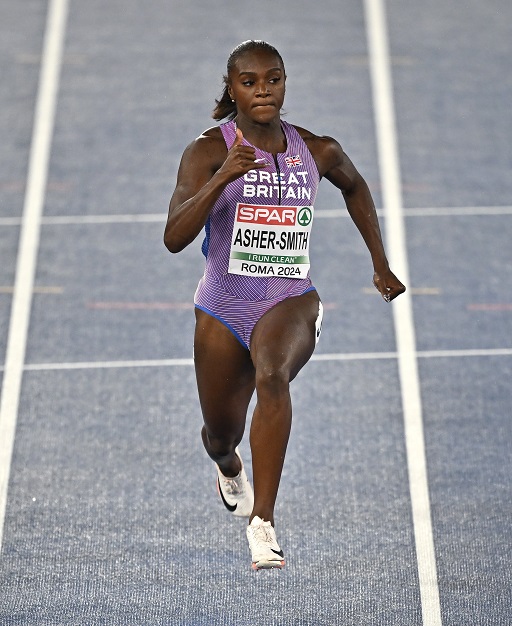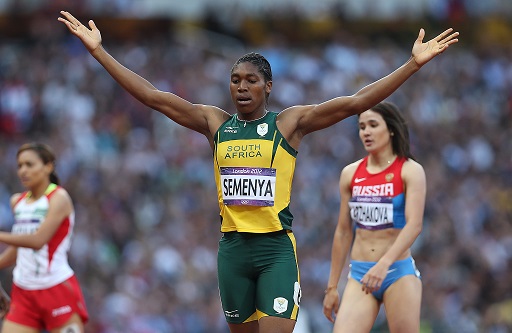1 ‘You run like a girl!’
You will begin by examining the commonly used insult: ‘You run like a girl!’ Why is that a derogatory comment when we see highly competent female athletes such as British record holder Dina Asher-Smith (Figure 1) competing on the track?
Do you think that derogatory comments like this discriminate against women? The comment could implicate girls not running as fast as boys; and when a female athlete does run fast their gender is questioned, evident in the case of Caster Semenya (Figure 2). What impact do you think comments like this have on young girls?
To get a flavour of why gender is a contemporary issue in sport, and why it is important to study it, complete Activity 1.
Activity 1 Why study gender in sport?
Listen to the audio below in which Helen Owton speaks to Katie Barak.
Also look at the poster ‘“Smile more”: women’s experiences of sexism while working in sport’ [Tip: hold Ctrl and click a link to open it in a new tab. (Hide tip)] (McGinty-Minister, Whitehead and Swettenham (2023) and answer the following questions:
- What sort of behaviour do women report as experiencing at an interpersonal level?
- What reasons did women give for avoiding reporting sexism?
As you listen to the audio and look at the poster, reflect on why gender is a contemporary issue and why it is of relevance to you.
Please note that any references to ‘course’ in this audio refer to studying gender in sport at The Open University course (E315), rather than this OpenLearn course.
Transcript
Comment
- Women report experiencing condescending behaviour, sexual comments and behaviour, policing gender stereotypes, and using ‘banter’ to minimise sexist transgressions. 77.2% of women reported being treated as inferior, for example men interrupting them or talking over them in meetings.
- Women avoided reporting sexism for two reasons:
- a.38.1% of women thought there would be negative consequences for their reputation.
- b.33.3% of women thought there would be negative consequences for their career overall.
Gender is an issue for women and men to consider, study and become passionate about in sport. It’s also important to consider intersectionality, which is the idea that everyone is composed of multiple intersecting identities. Race, gender, class, sexuality, nationality, ethnicity and ability are all part of someone’s identity and they are not experienced exclusively.


